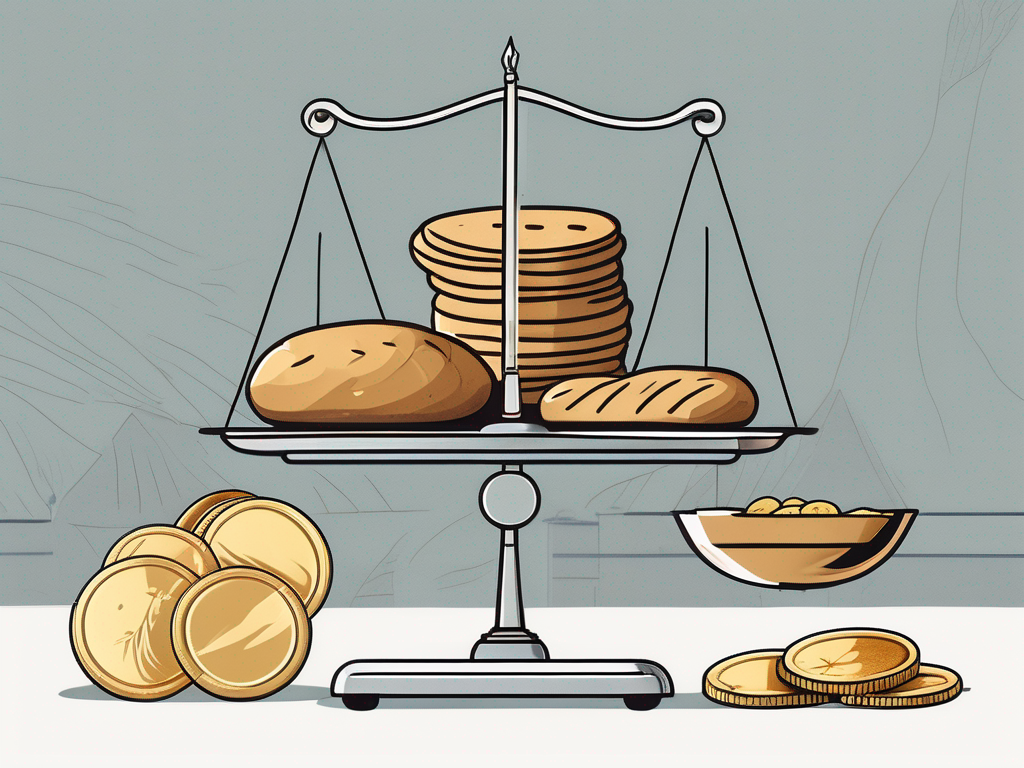In a world where poverty continues to be a pressing issue, many individuals find solace and guidance in their religious beliefs. For Christians, the Bible serves as a source of wisdom, offering insights into various aspects of life, including poverty. This article aims to explore what the Bible says about poverty, delving into its understanding, causes, and how God views the poor. Additionally, we will examine biblical instructions for dealing with poverty and the role of charity, generosity, and justice in addressing this societal challenge.
Understanding Poverty in Biblical Context
Before we dive into the specific teachings, it’s crucial to explore the biblical understanding of poverty. According to the Bible, poverty is not merely a lack of material wealth but encompasses a broader scope. It involves a state of extreme deprivation, wherein individuals lack the resources necessary to meet their basic needs and sustain a decent standard of living. Poverty affects various aspects of people’s lives, including their physical, emotional, and spiritual well-being.
In the Bible, poverty is portrayed as a complex issue, intertwined with societal structures, individual choices, and spiritual elements. By examining how poverty is defined in the scriptures, we gain a deeper understanding of its significance and implications.
Defining Poverty in the Bible
First and foremost, the Bible acknowledges that poverty exists and recognizes the struggles faced by those in need. It emphasizes the importance of compassion and the responsibility of individuals and communities to alleviate poverty wherever possible. Understanding poverty in the biblical context involves recognizing the multifaceted nature of the issue.
Moreover, poverty is not viewed solely as the result of personal shortcomings or failures, but as a consequence of the fallen nature of the world. It is a reflection of the brokenness and imperfections that emerged from the original sin.
When we delve into the biblical understanding of poverty, we discover that it is not just a matter of lacking material possessions. It encompasses a deep sense of vulnerability and powerlessness. Poverty affects not only an individual’s physical well-being but also their emotional and spiritual state. It is a state of being that robs people of their dignity and hinders their ability to thrive.
Furthermore, the Bible teaches that poverty is not an isolated issue but is deeply intertwined with societal structures. It highlights the importance of just economic practices, such as fair wages, refraining from exploiting the poor, and providing for the needy through acts of charity and generosity. The biblical understanding of poverty calls for a holistic approach that addresses both the individual and systemic factors contributing to poverty.
The Old Testament’s View on Poverty
Turning our attention to the Old Testament, we find numerous passages that shed light on God’s concern for the poor. In the Hebrew Scriptures, special consideration is given to vulnerable groups such as widows, orphans, and foreigners, who were particularly at risk of experiencing poverty and injustice.
The Old Testament teachings stress the importance of just economic practices, such as fair wages, refraining from exploiting the poor, and providing for the needy through acts of charity and generosity. The book of Proverbs, for example, contains numerous verses that highlight the importance of helping the poor and warns against oppressing them.
Additionally, the Old Testament emphasizes the role of the community in addressing poverty. It calls for the establishment of systems and laws that protect the rights of the poor and ensure their well-being. The concept of gleaning, for instance, allowed the poor to gather leftover crops from fields, ensuring that they had enough to eat.
The New Testament’s Perspective on Poverty
Moving forward to the New Testament, we encounter the teachings of Jesus Christ and the early Christian community. The New Testament presents poverty not only as a social issue but also as an opportunity for spiritual growth and transformation. Jesus consistently prioritized the marginalized, offering love, compassion, and tangible assistance to those in need.
The New Testament encourages believers to develop a heart of generosity, willingly sharing their resources and caring for the less fortunate. It challenges individuals to consider their priorities and warns against the dangers of materialism and greed. Jesus’ teachings on the rich young ruler, for example, highlight the importance of prioritizing eternal treasures over earthly wealth.
Furthermore, the New Testament emphasizes the importance of community and mutual support in addressing poverty. The early Christian community in Acts, for instance, shared their possessions and ensured that everyone had their needs met. This model of communal living serves as a powerful example of how believers can come together to combat poverty and create a more just society.
In conclusion, understanding poverty in the biblical context goes beyond a mere lack of material wealth. It encompasses a deeper understanding of the multifaceted nature of poverty, its impact on individuals and communities, and the biblical call to compassion and justice. By exploring the Old and New Testament teachings on poverty, we gain insights into how we can address this pressing issue in our own lives and in society as a whole.
Biblical Teachings on the Causes of Poverty
While the Bible recognizes the existence of poverty, it also sheds light on its underlying causes. Understanding these causes enables us to address the issue more effectively and develop a holistic approach to poverty alleviation.
In addition to the causes already mentioned, there are other factors that contribute to poverty according to biblical teachings. Let’s explore them further:
Poverty as a Result of Sin
The Bible acknowledges that sin has far-reaching consequences, affecting not only individuals but also societies. The presence of sin in the world has led to systems and structures that perpetuate poverty. Greed, exploitation, and corruption are some of the sinful behaviors that contribute to the persistence of poverty.
Confronting poverty requires acknowledging and repenting of our own sinful attitudes and actions. It also calls for advocating for justice and working towards transforming unjust systems that perpetuate poverty.
Furthermore, biblical teachings emphasize the importance of stewardship and responsible use of resources. When individuals and societies fail to exercise wise stewardship, it can lead to poverty and economic instability.
Poverty as a Test of Faith
Interestingly, the Bible presents poverty as a test of faith. It challenges believers to respond with compassion, empathy, and genuine concern for those in need. Poverty exposes the true nature of one’s faith and serves as an invitation to live out the values and teachings of Christ.
Walking alongside the poor and actively seeking solutions can deepen one’s faith, fostering a greater reliance on God and his provision. It encourages believers to be generous and sacrificial in their giving, trusting that God will provide for their needs as they prioritize the needs of others.
Moreover, biblical teachings emphasize the importance of community and mutual support. The early Christian communities were known for their care and concern for the poor, providing a model for believers today to actively engage in poverty alleviation efforts.
Poverty and Social Injustice
An integral aspect of the biblical teaching is the emphasis on social justice. The Bible speaks against the mistreatment of the poor, calling for equal treatment and equitable distribution of resources.
Addressing poverty entails advocating for fair economic systems, combating discrimination, and standing against social inequalities that perpetuate poverty cycles. It requires challenging oppressive structures and working towards a society where everyone has equal opportunities to thrive.
Biblical teachings also emphasize the importance of generosity and sharing. Believers are encouraged to be open-handed and to use their resources to bless others, especially those who are marginalized and in need.
By understanding and applying these biblical teachings on the causes of poverty, we can work towards a more just and compassionate society. It is not enough to simply acknowledge the existence of poverty; we must actively seek to address its root causes and work towards a world where everyone has the opportunity to live a life free from the chains of poverty.
God’s Attitude Towards the Poor
Understanding God’s attitude towards the poor is crucial for believers seeking to align their actions with his will. It is through this understanding that believers can truly grasp the depth of God’s love and compassion for those who are in need.
In the Bible, God is repeatedly portrayed as compassionate and concerned for the welfare of the poor. His heart goes out to those who are struggling, and He calls his followers to reflect this compassion in their own lives. This divine compassion is not just a passive feeling, but rather a call to action.
By extending love and support to the poor, believers imitate God’s character and demonstrate his redemptive love to the world. They become vessels through which God’s compassion flows, bringing hope and healing to those who are in desperate situations.
God’s Compassion for the Poor
God’s compassion for the poor is not a mere sentiment, but a deep and abiding concern for their well-being. Throughout the Scriptures, we see God’s heart breaking for those who are oppressed and in need.
When Jesus walked the earth, he exemplified this compassion in his interactions with the poor and marginalized. He reached out to the outcasts of society, offering them love, acceptance, and a message of hope. His ministry was marked by acts of kindness and generosity towards those who were often overlooked or ignored.
As believers, we are called to follow in the footsteps of Jesus and embody his compassion for the poor. This means not only providing material assistance, but also offering a listening ear, a comforting presence, and a voice of advocacy for those who have been silenced.
God’s Justice for the Poor
Alongside compassion, God is portrayed as a God of justice. The Bible speaks of God’s desire to see justice prevail and the oppressed experience liberation from poverty.
God’s justice calls believers to actively engage in the pursuit of justice, advocating for fair treatment and equal opportunities for all, especially for the poor and marginalized. It is not enough to simply feel compassion; we must also work towards systemic change that addresses the root causes of poverty and inequality.
This pursuit of justice may involve challenging unjust systems, speaking out against exploitation, and standing up for the rights of the poor. It requires a commitment to dismantling the barriers that keep people trapped in cycles of poverty, and a willingness to confront the structures of power that perpetuate inequality.
By seeking justice for the poor, believers align themselves with God’s heart and participate in his redemptive work in the world. They become agents of change, working towards a society where all individuals are valued, respected, and given the opportunity to thrive.
Biblical Instructions for Dealing with Poverty
In addition to providing an understanding of poverty and God’s heart for the poor, the Bible offers practical instructions for addressing this social challenge.
The Role of Charity in Addressing Poverty
Charity plays a significant role in the biblical response to poverty. The Bible instructs believers to be generous with their resources, sharing with those in need.
This generosity extends beyond material possessions to include a willingness to give time, support, and friendship to those experiencing poverty. It invites individuals to develop a compassionate attitude and actively look for opportunities to assist the less fortunate.
The Concept of Generosity and Sharing
Biblical teachings emphasize the importance of generosity and sharing as foundational principles for addressing poverty.
By adopting a mindset of generosity, believers are encouraged to share their blessings and resources to meet the needs of others.
The Importance of Advocacy and Justice
Beyond individual acts of charity, the Bible calls for justice and advocacy in combating poverty. Followers of Christ are encouraged to speak out against injustice, work for systemic change, and strive for a society where poverty is eradicated.
Addressing the root causes of poverty requires active engagement in promoting fairness, dismantling unjust structures, and advocating for policies that uplift the poor.
In conclusion, the Bible provides valuable insights into poverty, offering believers guidance and encouragement to address this significant issue. It defines poverty in a comprehensive way, reveals its causes, and highlights its spiritual implications. Furthermore, the Bible illuminates God’s attitude towards the poor, emphasizing compassion and justice. By following the biblical instructions for dealing with poverty, believers are called to extend charity, embrace generosity, and advocate for justice, working towards a society where poverty is no longer a pervasive reality.












